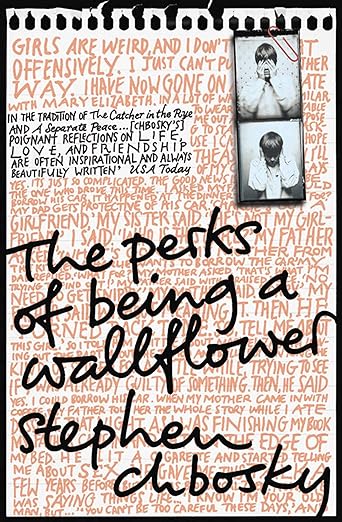A BLOOMING WALLFLOWER
Stephen Chbosky’s novel is a great example of how the epistolary narrative style can be used powerfully. The Perks of Being a Wallflower is written from the perspective of Charlie, a teenage boy in his first year of high school, who’s writing to an unknown recipient, ‘dear friend’ , as he recounts his year through these letters.
This book is interesting in that it addresses both very mundane parts of his daily life, such as homework, exams, and school friendships, as well as some very difficult themes, including sexual assault, mental health, and suicide.
Charlie, a self-confessed wallflower, starts his first year of high school with no friends and ends up meeting a small group of people in their final year at the school who he forms a true connection with.
There’s Patrick, who is often teased at school because he is different, but who loves and accepts himself so much that Charlie is in awe of him. And there’s Sam, who Charlie eventually falls in love with and who helps Charlie realise his own truth later in the novel.
We come to learn that Charlie has already faced some real hardship in his life, with his “favourite aunt” Helen dying while he was young and his best friend taking his own life.
As he moves through the year, discovering more about himself by going to parties and reading all the extra books that his English teacher Bill gives him, Charlie has occasional flashbacks to the time when his aunt Helen was alive, the reason for which is explained much later in the book.
The novel has a huge twist at the end, which explains a lot about why Charlie is the way he is and why he has a certain view of himself and the relationships he forms with others. I won’t be giving the plot twist away, but you must read it because it’s such a clever, poignant story.
Reviewed by Lucy Skoulding




